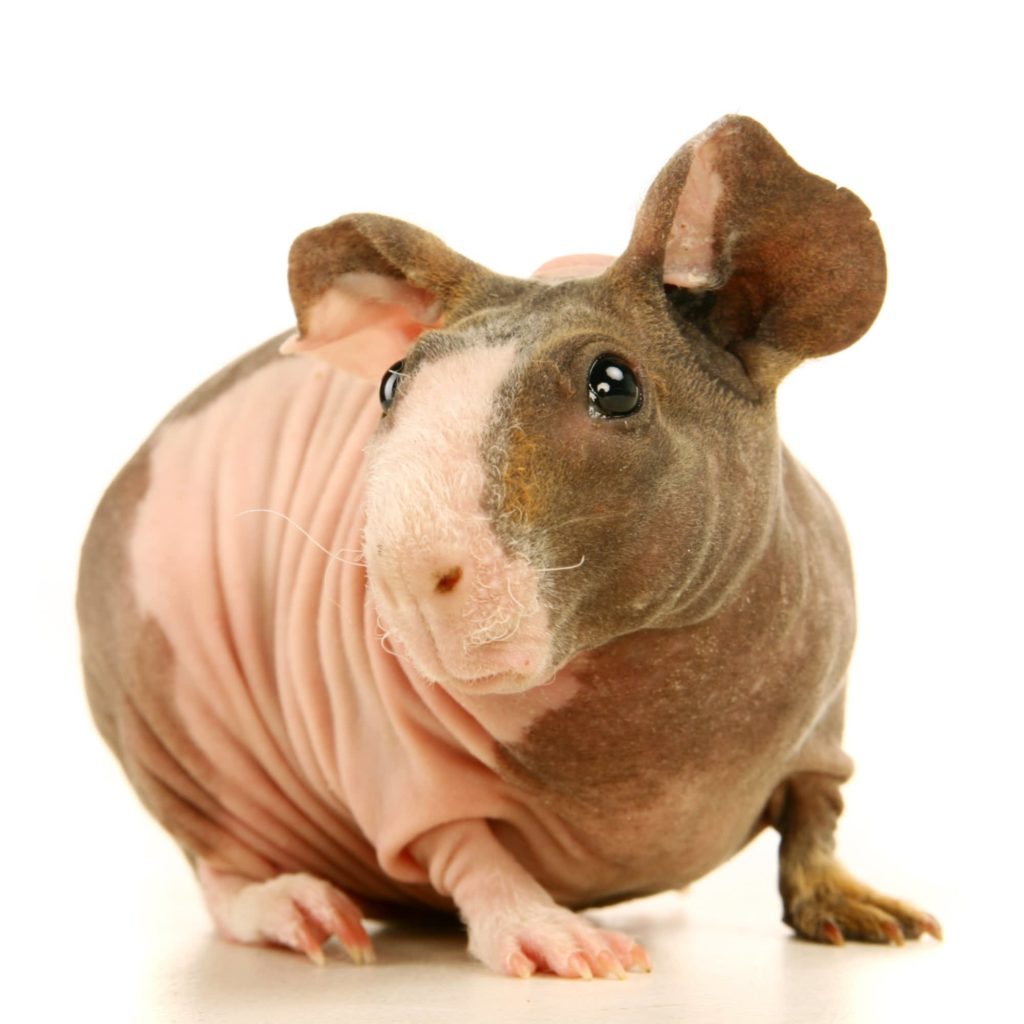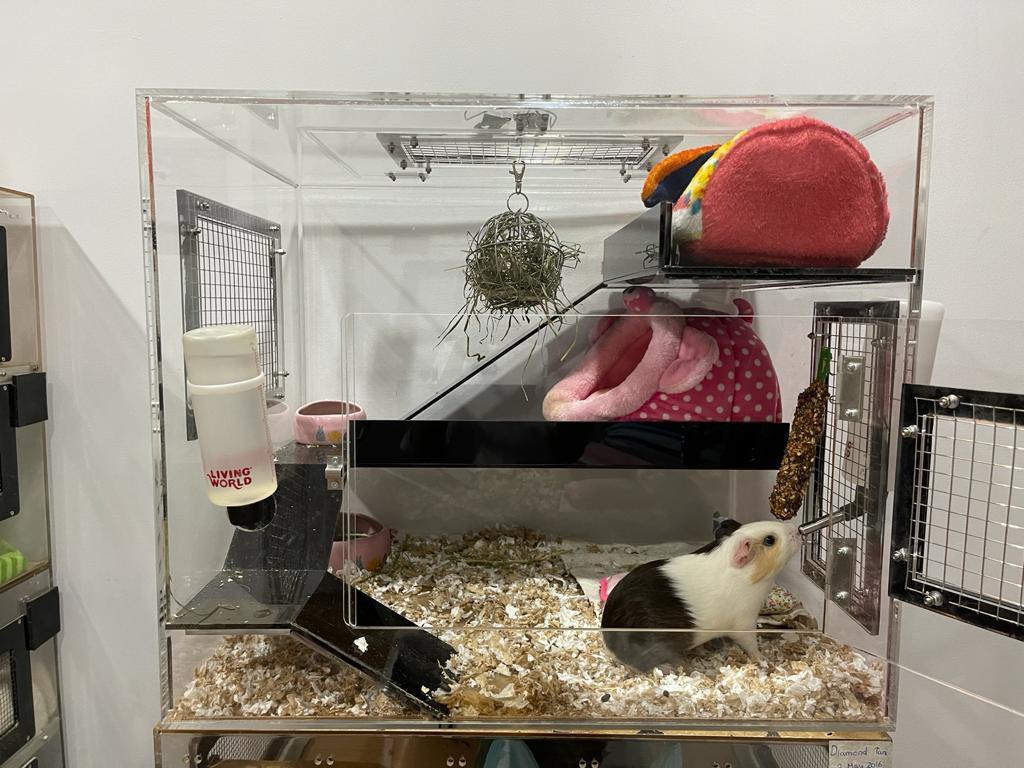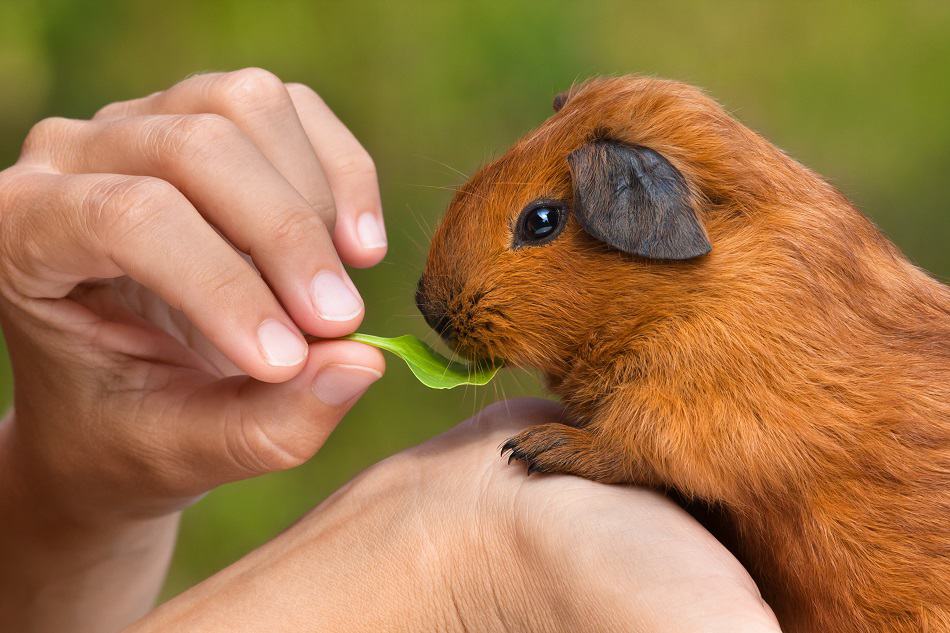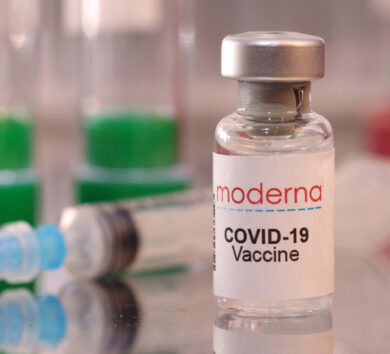

Inside this week’s pet feature with the Jamaica Society for the Prevention of Cruelty of Animals (JSPCA), the focus is on guinea pigs, and to provide us with the ‘need-to-know’ on these little creatures is senior veterinarian at the JSPCA, Dr Terriana Jones.
Contrary to popular belief, guinea pigs and hamsters are not the same. Although they are both rodents, guinea pigs are generally bigger in size than hamsters.
“They are two to four times bigger in size and weight compared to a hamster. They tend to be more sociable animals both with humans and other guinea pigs, whereas hamsters prefer solitary lifestyle,” Jones said.
What do I need to know before getting a guinea pig?

Responsibility, responsibility, responsibility! Jones expressed that no matter what pet one decides to get, owning a pet is a big responsibility.
Jones advised that it is better to get guinea pigs as pairs, being that they are such social creatures that require daily interaction, and they thrive better with a companion.
“Ensure that an appropriate environment that is safe and enriched is available for the guinea pig. Guinea pigs can be considered good beginner pets and can live for five to seven years if properly cared for,” Jones explained.
What should my guinea pig’s environment look like?

There are several requirements for the living space of a guinea pig. A suitable cage of 7.5 square feet per guinea pig is recommended. The cage should also be cleaned on a daily basis to ensure your pet maintains a good hygiene.
Proper ventilation and an escape proof cage is important to keep your pet safe and secure.
Jones also shared that good and clean bedding is important, as it otherwise, it may result in your pet becoming unhealthy.
“Solid flooring with good bedding (such as shredded paper) should be provided to prevent foot sores. Dusty bedding can pose a health risk for your guinea pig.”
Guinea pigs require adequate space for exercise and play time, as well as a hidden area for privacy and rumination.
What should a guinea pig eat and drink?
The guinea pig’s diet consists of pig pellet food, fruits, vegetables and Timothy hay. The latter is a good source of is a good source of fibre and an unlimited amount must be fed to your guinea pig each day. One should ensure that the pellets purchased must be specifically formulated for your pet.
Vitamin C is especially important in their diet Jones said.
“Vitamin C supplementation is an important part of a guinea pigs diet as guinea pigs cannot synthesise vitamin C in their body. Vegetables and fruits rich in vitamin C such as sweet peppers, strawberries, leafy vegetables.”
Ensure you feed your pet fruits in moderation, an excessive amount of it can lead to diarrhea. Vegetables and fruits should only make up 10 per cent of their diet.
As is usual with all other animals, guinea pigs should only be given water to drink.
Several foods however, should not be given to guinea pigs, “Chocolate, caffeine and alcohol are toxic to guinea pigs and can lead to serious medical conditions and death,” Jones stated.
What are some common illnesses among guinea pigs?

The senior vet listed several common illnesses that affect guinea pigs. These include, diarrhea, scurvy, bumblefoot, respiratory illnesses, internal and external parasites and Malocclusion.
Diarrhea – this is caused by a poor diet, stress, internal parasites and poor hygiene.
Scurvy – this Vitamin C deficiency can result in muscle weakness, bleeding and death.
Bumblefoot – known scientifically pododermatitis, is caused by poor hygiene conditions, especially poor bedding
Respiratory Illnesses – this happens asa result of duty bedding or poor hygienic conditions.
Malocclusion – is also known as overgrown tooth. Given that these creatures have open rooted teeth, they grow continuously throughout their lives. Therefore, they require hay, mineral chews, toys to gnaw on that helps to wear down their teeth. “If their teeth become overgrown it can lead to difficulty eating, salivation, weight loss,” Jones said.
How often should I bring my guinea pig to the Vet for a checkup?
According to Jones, guinea pigs can visit the Vet for a routine checkup every four to six months. However, if you recognise a difference in behaviour such as loss of appetite, abnormal breathing or diarrhea, consult with your Vet immediately.
Are there common misconceptions about guinea pigs?

Guinea pigs are related to pigs – these creatures are in fact not related to pigs, they are rodents.
Can’t be neutered – Jones shared that guinea pigs can be neutered in order to prevent frequent reproduction.
Low maintenance animals – contrary to popular belief, guinea pigs are not low maintenance animals, they require proper care and attention.
Do not interact with humans – guinea pigs are social animals, and overtime through patience, proper handling and care, they can interact with their owners.
JSPCA

The JSPCA is committed to rescuing, healing and protecting animals. The JSPCA has been working for more than 100 years. Their main goal is to promote the compassionate treatment of animals through education, advocacy, veterinary care and the placing of unwanted animals in loving homes.
- Dr Terrina Jones is the current senior veterinarian at the JSPCA. A former student of the University Of The West Indies, St Augustine Campus, Jones has been practising Veterinary Medicine for seven years.







Comments